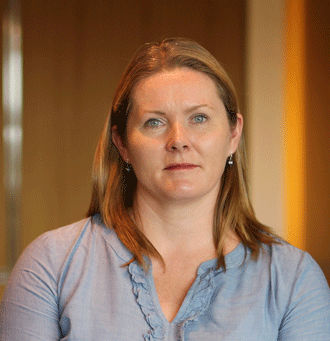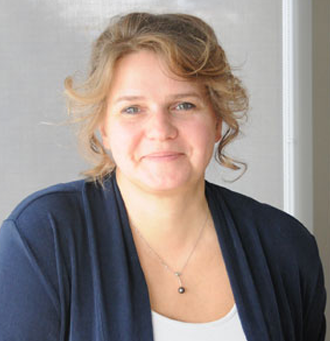
|
|

|
The Harrington Discovery Institute at University Hospitals in Cleveland, Ohio, in collaboration with Morgan Stanley GIFT (Global Impact Funding Trust) Cures, has chosen two UMass Medical School faculty members to receive Harrington Scholar Awards for Coronavirus. Katherine Fitzgerald, PhD, and Anastasia Khvorova, PhD, are among the 12 COVID-19 Rapid Response Initiative award winners, selected from among hundreds of applications submitted by physicians and scientists at 122 universities and health systems across the U.S., Canada and the United Kingdom.
Award recipients will receive grant funding and expert drug development support to advance novel therapies, next-generation vaccines and vaccine alternatives to fight COVID-19 and avert future pandemics.
Fitzgerald, the Worcester Foundation for Biomedical Research Chair, professor of medicine, vice chair of research in the Department of Medicine and director of the Program in Innate Immunity, is pursuing fumarate-based therapeutics and clinical trial for lung injury through the grant award. Her lab focuses on understanding the molecular mechanisms controlling the inflammatory response. Her group has made seminal discoveries in the areas of host-pathogen interactions, innate immunity and mechanisms of inflammation, including discoveries of new receptors for pathogens, new signaling molecules and defining how innate immune pathways contribute to autoimmune and inflammatory disease.
Khvorova, professor of RNA therapeutics, is developing a multivirus therapy for COVID-19 and other pandemic-causing viruses with support from the Harrington award. Scientists in her lab identify the chemical and biological properties that drive small RNA tissue distribution, retention, cellular uptake and biological availability. Their goal is to deliver oligonucleotide and RNA-based therapies to the heart, kidneys, muscle, placenta, vasculature and brain—tissues previously not targeted by RNAi—through chemical engineering. They are investigating a cocktail of siRNA and antisense RNA oligonucleotides that are specific for SARS-CoV-2, which in concept, could be delivered to all cell types in the lungs and target the mRNA of the virus to significantly reduce the rate of viral replication.
The call for Harrington proposals was part of a major initiative to galvanize the institute’s transatlantic network of academic institutions, foundations and philanthropic partners to rapidly respond to the global pandemic. In further action, Harrington Discovery Institute will seek to organize development of COVID-19 therapies derived from academia broadly, accelerate breakthrough treatments within its portfolio, and raise capital to resource this effort through Morgan Stanley GIFT Cures, its philanthropic partnership with Morgan Stanley.
“The response to the call for proposals has far exceeded our expectations. The quality of science and potential for clinical impact are truly remarkable. Frankly, there are probably 50 projects here that show promise to protect the nation and the world,” said Jonathan S. Stamler, MD, president, Harrington Discovery Institute, the Robert S. and Sylvia K. Reitman Family Foundation Distinguished Professor of Cardiovascular Innovation and professor of medicine at University Hospitals and Case Western Reserve University. “Our next step will be to build drug development teams around the awardees and to work with urgency to advance these treatments. We are hopeful that many of these novel therapies will be in clinical trials shortly.
The Harrington Discovery Institute at University Hospitals in Cleveland, Ohio—part of The Harrington Project for Discovery & Development— was created in 2012 with a $50 million founding gift from the Harrington family.